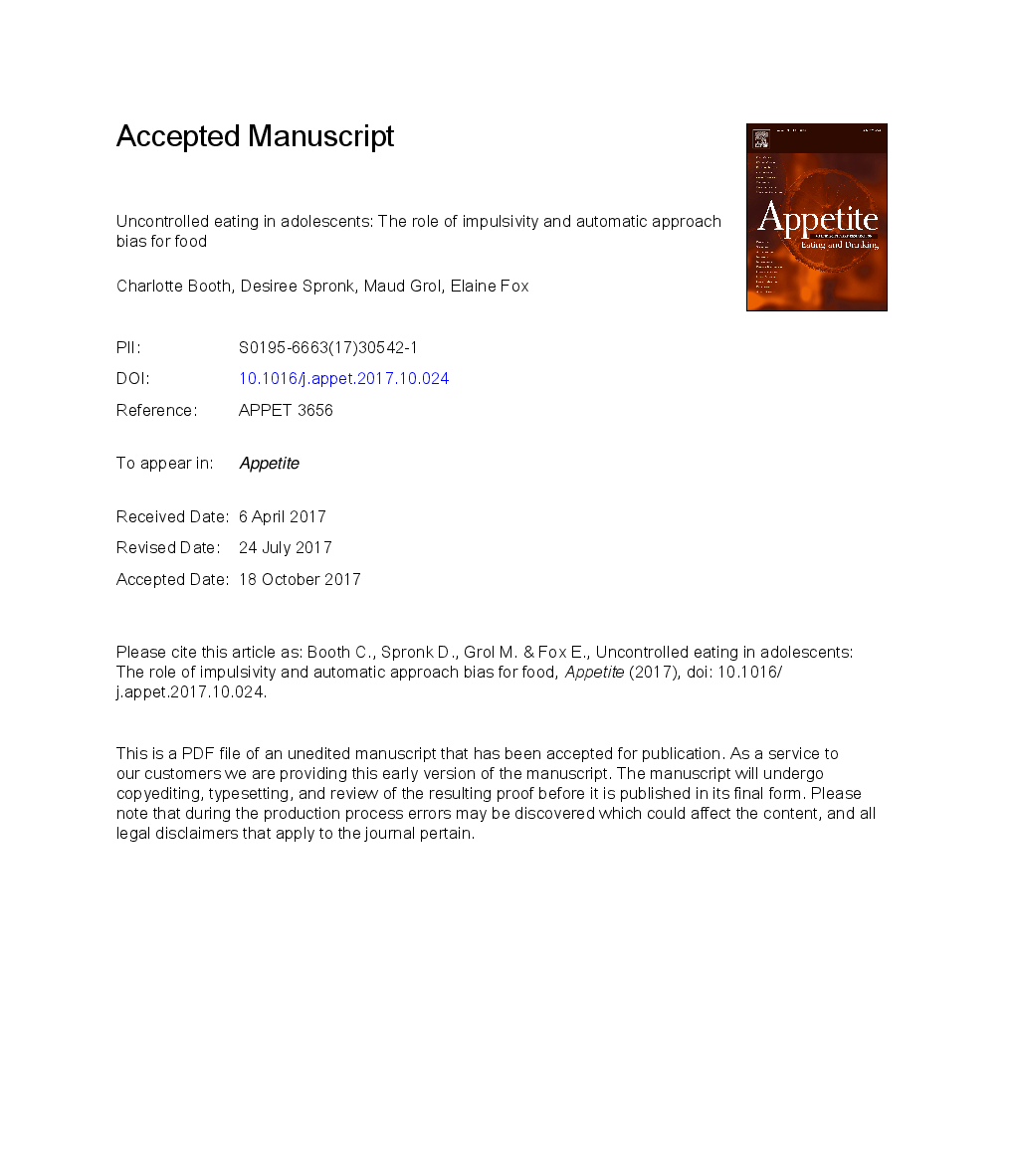ترجمه فارسی عنوان مقاله
خوردن کنترل نشده در نوجوانان: نقش تکانشگری و تعویض روش خودکار برای غذا
عنوان انگلیسی
Uncontrolled eating in adolescents: The role of impulsivity and automatic approach bias for food
| کد مقاله | سال انتشار | تعداد صفحات مقاله انگلیسی |
|---|---|---|
| 122274 | 2018 | 30 صفحه PDF |
منبع

Publisher : Elsevier - Science Direct (الزویر - ساینس دایرکت)
Journal : Appetite, Volume 120, 1 January 2018, Pages 636-643
ترجمه کلمات کلیدی
بدون کنترل و خوردن، تکانشی، تغذیه-تعصب، فرآیند دوگانه، نوجوانان، چاقی،
کلمات کلیدی انگلیسی
Uncontrolled-eating; Impulsivity; Food-bias; Dual-process; Adolescents; Obesity;

